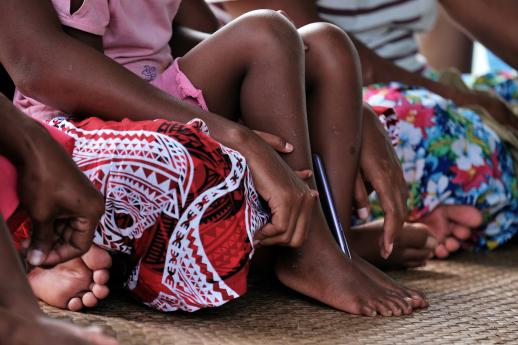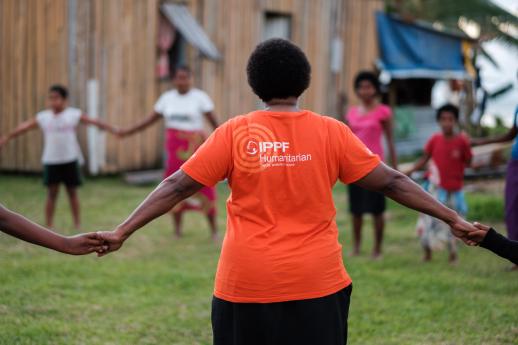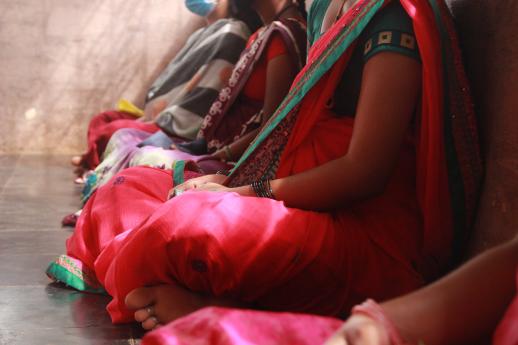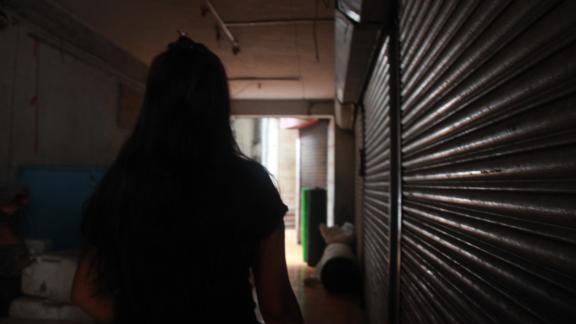IPPF is on the frontlines of the fight against sexual and gender-based violence, demanding justice, care and autonomy for survivors as a cornerstone of reproductive rights. Reproductive coercion, a gender-based violence that strips women of their power to make decisions about their own bodies, is a critical focus.
Overview
Sexual and gender-based violence (SGBV)—particularly violence against women, girls, and transgender individuals—is a widespread human rights violation with devastating effects on individuals, families, and communities. It ranks among the leading causes of death and disability for women worldwide. Every minute, 1,400 women experience physical or sexual violence, (WHO, 2024). Adolescents and young women face a higher risk of intimate partner violence (IPV), with prevalence among ever-partnered adolescent girls aged 15–19 ranging from 16% in the last year to 24% in their lifetime (LynnMarie et al, 2024). Women with disabilities are up to ten times more likely to experience SGBV, and individuals with diverse sexual orientations and gender expressions face significant violence and access barriers (UNFPA, 2018).
Sexual and gender-based violence is especially severe in emergency and conflict settings. The International Rescue Committee (IRC) (2022) reports that 73% of women in crisis settings have experienced increased domestic violence, and 51% have experienced sexual violence. According to Save the Children (2022), girls affected by conflict are 20% more likely to marry as children than those in peaceful areas. Conflict, poverty, and patriarchal norms perpetuate SGBV, with early, forced marriages and female genital mutilation (FGM) persisting despite legal prohibitions. The COVID-19 pandemic worsened this “shadow pandemic,” threatening hard-won progress in bodily autonomy since the Beijing Platform and the ICPD Programme of Action.
IPPF is committed to preventing violence and supporting survivors. Achieving reproductive justice for all requires addressing sexual and gender-based violence’s impact on sexual and reproductive health (SRH) through accessible, comprehensive care, with trained providers and strong referral networks. Reproductive coercion (RC) is a critical form of SGBV where IPPF is making an impact by training SRH providers and extending contraceptive counselling to detect and address this form of violence. Reproductive coercion, often perpetrated by intimate partners, family, or community members, undermines women’s reproductive autonomy, and providers are key to offering support and referrals for those affected.
when

Adolescents and young women face a higher risk of intimate partner violence
IPPF/Masada Vuikadavu/FijiWhat is Reproductive Coercion?
Reproductive Coercion (RC) is a type of gender-based violence that reduces women’s reproductive autonomy. It includes actions by intimate partners or family members aimed at controlling contraception access, pregnancy decisions, and reproductive choices. Forms of RC include contraceptive sabotage, pregnancy coercion, and abortion coercion.
According to UNFPA’s State of the World Population report, nearly 1 in 10 women worldwide lack control over contraceptive decisions, and maternal mortality still claims 800 lives daily—a statistic unchanged since 2016 (UNFPA, 2024). While there are no comprehensive national studies on reproductive coercion prevalence, research across various countries, including LMICs, suggests rates between 10% and 27% (Grace & Fleming, 2016; Silverman et al., 2022). Reproductive coercion is also often linked to intimate partner violence, as physical, emotional, or sexual violence may be used to restrict women’s reproductive choices. Reproductive coercion and IPV lead to significant SRH consequences, such as unintended pregnancies, early childbearing, and unsafe abortions.
Studies show that women often resist reproductive coercion by using contraceptive methods covertly, demonstrating resilience and self-protection in controlling their reproductive choices (Moulton et al., 2021). IPPF’s work underscores the health sector’s essential role in addressing GBV, offering SRH services that support SGBV survivors, and connecting them with further resources. IPPF encourages its Member Associations to provide comprehensive first-line support for survivors and to facilitate access to additional services.
IPPF member associations were among the first to adapt Addressing Reproductive Coercion in Health Settings (ARCHES) - a model that has been proven to reduce intimate partner violence (IPV) and enhance women’s agency.

IPPF member associations were among the first to adapt Addressing Reproductive Coercion in Health Settings
IPPF/Rob RickmanSoul City Institute for Social Justice (IPPF CP in South Africa), Communications and Advocacy Manager, Pontsho Pilane, reflected on the issue mentioning: ‘Reproductive coercion is a silent but insidious form of violence that robs women and gender-diverse people of their autonomy and control over their bodies. At the intersection SGBV and SRH, it perpetuates cycles of oppression, inequality and harm. At Soul City Institute, we address this form of violence through relentless advocacy for bodily autonomy, centering the human rights and dignity of women and gender-diverse individuals. We champion policies that uphold reproductive justice while challenging and shifting the social norms and values that enable reproductive coercion. Our call is clear: systemic change is non-negotiable to end reproductive coercion in all its forms.’

Mexfam's successful adaptation of the ARCHES model offers an opportunity to enhance institutional expertise in innovation and evidence-based model adaptation for service delivery. The model is showing positive outcomes in the piloting clinics in terms of better internal communications and efficiency, reportedly creating a safer environment for women and girls.

FPA India's Director of Gender and Rights, Nisha Jagdish shared that: ‘The ARCHES model—Addressing Reproductive Coercion in Health Settings—is designed to support women facing reproductive challenges and reduce gender-based violence. The current model adaptation in India is unique in nature, It involves a co-design process with different cadres of Sexual and Reproductive Health providers in Gwalior, It engages local stakeholders, including youth and women group representatives, who are consulted as part of the ARCHES Advisory Board and It includes community-based providers like Accredited Social Health Activists (ASHAs), Anganwadi Workers (AWWs), and FPAI volunteers in the rollout of the model. By involving these diverse voices, ARCHES aims to create a support network that truly reflects the community it serves, setting a new standard for adaptable and inclusive reproductive health services.’

By involving these diverse voices, ARCHES aims to create a support network that truly reflects the community it serves
IPPF/Disha Arora/2022
In Morocco, with the leadership of the Association Marocaine de Planification Familiale (AMPF) we are conducting a research study to develop a stakeholder-informed definition of Reproductive Violence including the different forms of Reproductive coercion that is specific to the Moroccan context and will then adapt the different tools used to measure the prevalence of these forms of SGBV to be used ...

Reproductive justice is essential to understanding and challenging the entrenched gendered dynamics that control people’s reproductive lives. It is grounded in an intersectional feminist perspective, addressing how intersecting inequalities—such as race, age, class, sexism, and heterosexism—shape bodily autonomy and reproductive integrity. Protecting those most affected by restrictive reproductive norms is critical to achieving justice and freedom for all.
During the 16 Days of Activism, we invite you to reflect on the impacts of reproductive coercion and other restrictions on reproductive choice, and to demand accountability from decision-makers, governments, civil society organizations, providers, and communities. Together, we must ensure that reproductive justice and autonomy are upheld for all individuals.
Article by Nihal Said, Research & Partnerships Senior Advisor and Seri Wendoh, Global Lead, Gender & Inclusion
Banner image: IPPF/Disha Arora/2022










